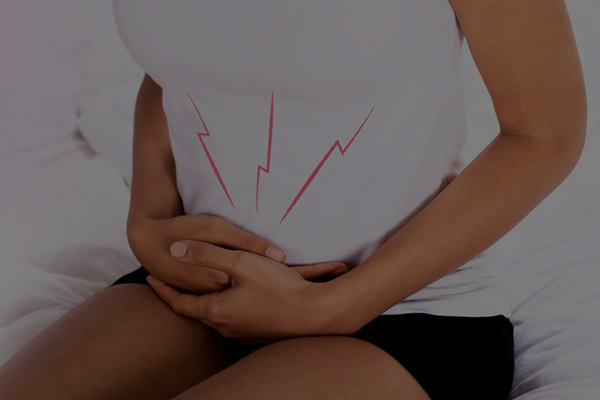
IBS is a disorder that includes cramping, abdominal pain, bloating and diarrhea or constipation . It affects 20 percent of adult Americans, half of whom first suffer symptoms before age 35. More women than men suffer from IBS, and as many as 70 percent of sufferers never see a doctor about it.
No one contracts cancer from IBS, nor does IBS cause irreparable damage to the intestines. Crohn’s disease and ulcerative colitis are not related to IBS, but IBS causes some sufferers to not be able to work, travel short distances or attend parties and other social events. IBS is known by many other names: colitis, mucous colitis, spastic colon, or spastic bowel.
TYPES OF IBS
There are three types of Irritable Bowel Syndrome (IBS):
IBS with Constipation (IBS-C)
IBS with Diarrhea (IBS-D) and
IBS with both, alternating from constipation to diarrhea (IBS-A).
Approximately equal numbers of people suffer from each of the IBS types. Sufferers also might experience multiple types over their lifetimes, making it difficult to find one treatment to relieve all symptoms.
IBS SYMPTOMS
IBS’s main symptoms are pain, bloating and discomfort, but symptoms can vary among patients with IBS. Scientists are not sure why people develop IBS, but some believe it is caused by a sensitive colon reacting negatively to some foods. Some believe the immune system is involved. People with IBS could suffer from muscle spasms in their colons if they are stressed – that is, they feel overwhelmed, angry, troubled or mentally/emotionally tense.
HOW IS IBS DIAGNOSED
Doctors can diagnose people with IBS based on their medical histories, or they might test the person’s stool and/or blood, or they might x-ray the abdomen. Sometimes a sigmoidoscopy or colonoscopy is needed. There are no IBS-specific tests, so sometimes doctors diagnose IBS based on the symptoms their patients show.
LIFESTYLE REMEDIES FOR IBS
Reducing stress and improving one’s diet are other ways to deal with IBS. Meditation, psychological counseling, exercise, yoga and adequate amounts of sleep are ways to lessen stress. Sufferers should avoid eating foods that cause IBS in them, and if those foods are rich in other nutrients, they should take supplements to compensate. Eating high-fiber foods helps with constipation and brings about soft and painless bowel movements. Eating smaller meals or smaller portions helps because IBS symptoms can come from eating large meals. Patients should eat meals low in fat and high in carbohydrates. Adding vegetables and fruits to the diet also helps. To treat diarrhea, patients should drink between six and eight glasses of water each day.
MEDICAL REMEDIES FOR IBS
There is no cure for IBS. However, doctors often prescribte fiber supplements and/or laxatives to treat constipation. Lubiprostone (Amitiza) has been shwoen to help patients with IBSconstipation. Doctors might suggest diphenoxylate and atropine (otherwise known as Lomotil) or loperamide (Imodium) to treat diarrhea. Antidepressants and antispasmodics can help control muscle spasms in the colon, but these also could cause constipation. Recent studies shown that treatment for bacterial overgrowth with anitbioties, like Rifaximin (Xifaxan) and probiotics are helpful in IBS.
CLINICAL TRIALS FOR IBS
Clinical trials for IBS are ongoing. The mechanics of fluids moving through the intestines are being studied, as are gastrointestinal structure and muscles. New treatments may come from a better understanding of how nerves, hormones and inflammation affect IBS.
Although there is no cure for IBS yet, doctors know what causes IBS, and they can determine treatments for IBS to alleviate symptoms. Therefore, patients with IBS should seek medical attention for their symptoms.
Learn more about current clinical trials for IBS here.







